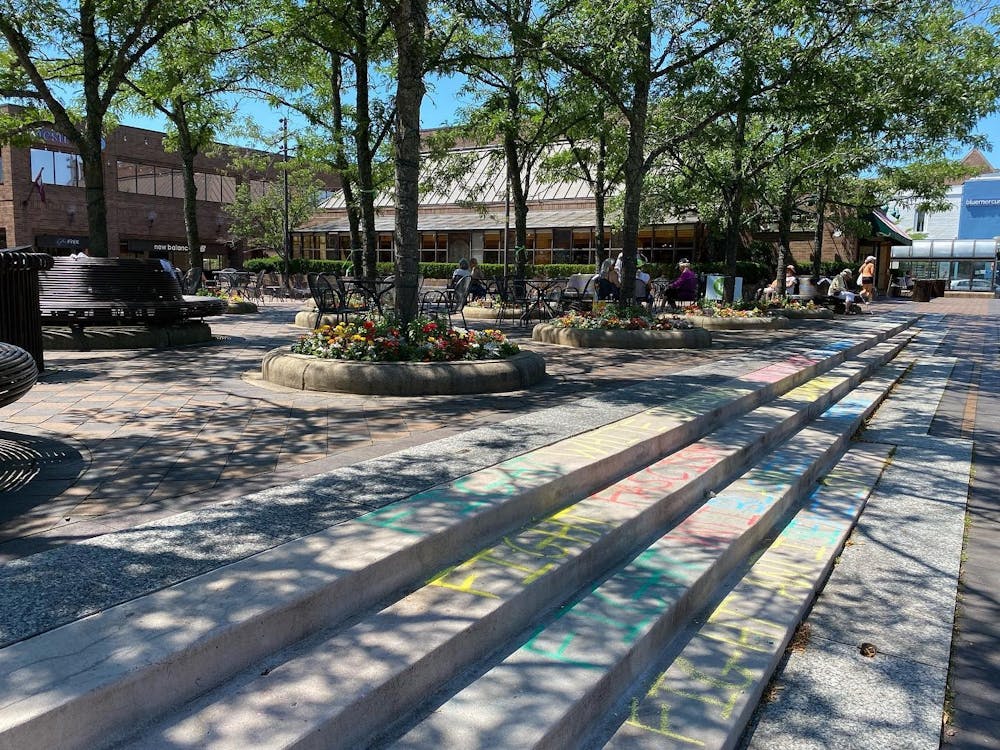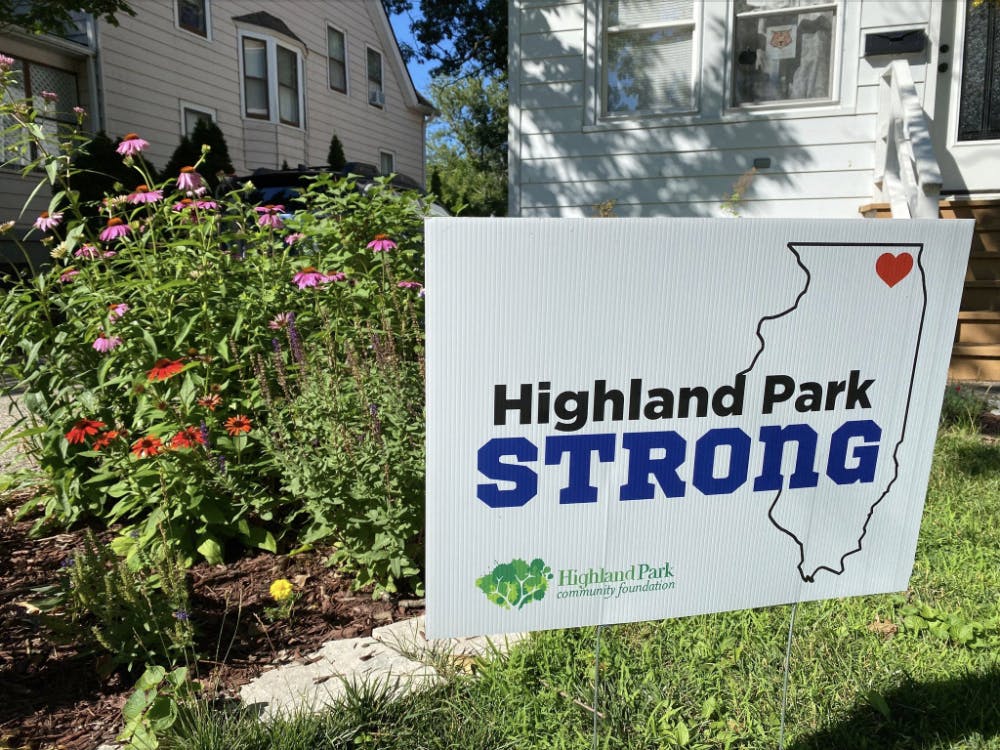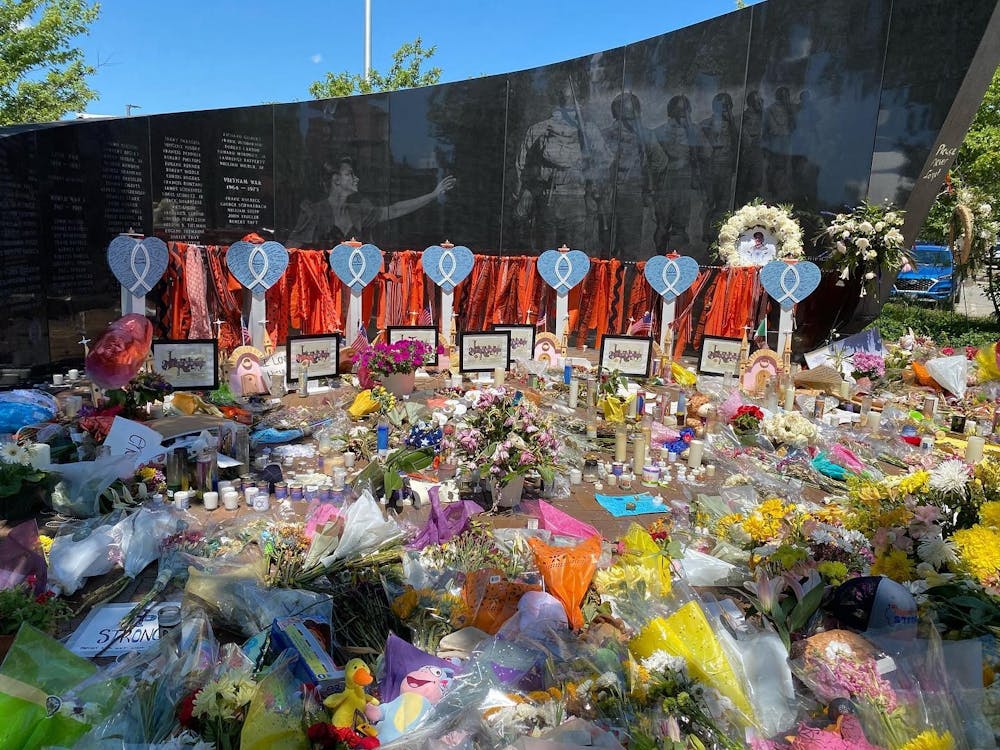Content Warning: The following piece contains detailed mentions of gun violence, shooting, and death.
On July 4, Jasper Cragwall GS ’07 had planned to walk in the parade near his home in Highland Park, Ill., but didn’t make it out because his son’s newly-built Lego castle had collapsed. And then the annual Independence Day celebration became the site of a mass shooting.
“We had to spend minutes calming him down, and because of that we were delayed out of the door to walk through the parade,” Cragwall said. “And by the time we left, we pretty quickly encountered crowds running in the opposite direction saying there was a shooter.”
As celebrations unfolded across the country, the nation received news of another tragedy, one in a series of mass casualty shootings that have roiled the country this summer. This time, the shooting struck close to the home of dozens of Princeton University alumni and community members who live in the Chicago suburb of Highland Park. Seven people, all between the ages 35 and 88, were killed by a gunman who positioned himself on a fire escape to fire on the families gathered to watch the community’s first annual Independence Day parade in two years. The accused shooter, who injured 46 people, was not detained until several hours after the violence.
Jacquie Toettcher, Manager of Administration for the Office of the Dean of Undergraduate Students (ODUS), wrote in an email to The Daily Princetonian that ODUS reaches out to “students whose hometowns are affected by mass shootings” and confirmed that ODUS has reached out to students from Highland Park.
Danny Frohman ’71 told the ‘Prince’ that he lives in an apartment just a block away from Highland Park’s main street. He was listening to the parade with his windows open when the shooting began.
“I heard this sort of — sort of dull staccato sound. At first I thought it was like a drum and bugle corps that starts with some loud drumming, but it was erratic. And then it was clear it was something else,” Frohman said.
Bob Bernat ’75 was driving his historic WWII Jeep in the parade when gunfire broke out.
“I heard what sounded like a firecracker to me,” Bernat said. “It sounded too high-pitched to be a rifle round, but I guess I was wrong.”
“All of a sudden this mass of humanity comes running at us,” Bernat said. “And I hear somebody say — and I had no idea who — I heard the word ‘gun.’”
Dr. Emily Mace GS ’10 told the ‘Prince’ that, for her and her children, their choice to sit and eat their ice cream in one place over another during the parade may have saved her life.
“Thank God we sat down by Dairy Queen,” she wrote. “Thank God my children sat in front of the curb, ready to grab candy after two years of no parade, not knowing this was a good place to be ready, instead, to run. Those twenty or thirty feet were the difference between life and death.”

As Mace fled, she recalled that a man was telling people to “stay down.”
“His wife clutched their toddler to her body,” Mace continued, “and behind me a woman screamed and sobbed in panic and I looked at my husband, our eyes meeting from ten feet away as I called out ‘Where are the kids!’ and he shouted back, ‘I don’t know!’”
Mace recalls that she then remembered she should stay quiet in case the shooter was “looking for people who are alive to shoot.”
“I shut my mouth and tried to look for my kids without raising my head,” she said.
‘All of a sudden it was in my town’
For Cragwall, the thought of a mass shooting striking his own community was almost unthinkable prior to that day.
“I had thought — and I had been privileged to think — … that gun violence was like being struck by lightning. A thing that happens. But not a thing that one reorganizes one’s life around,” Cragwall said. “For too many Americans, that’s just not the case.”
Overnight, Highland Park was transformed from a peaceful and quiet American town to the center of the nation’s attention. The change was deeply unsettling for residents.
Levy Nathan ’21 described learning about the violence from afar as “surreal.” “I grew up going to this parade,” he told the ‘Prince.’ “It’s one of the most sheltered things.”
“You’ve seen this before for every event whether it be Uvalde, Texas, or Sandy Hook, Conn., the way the scene looks with all the news crews,” Bernat said, “but outside of that it’s the grocery store or Walgreens or whatever — it doesn’t look any different. So the juxtaposition of these is really fascinating because you see something you never expect to see right next to something that looks quite usual.”
For Julie Kosarin GS ’83, the shock set in when she saw television journalist Ali Velshi reporting for MSNBC downtown.
“Two weeks before I had seen him from a warzone, basically, you know, on the border from Russia, right? And that kind of reporting. And all of a sudden it was in my town,” she said.

Image courtesy of Dr. Emily Mace GS 10
Many recent alumni said they have reflected in the past weeks on the small and tight-knit community that defines Highland Park.
“I went to the same high school that my parents did. They grew up not far from each other, and just around the corner from where they eventually raised me,” Daniella Cohen ’22 wrote to the ‘Prince.’
While some reflected on growing up in the same community as their parents, others said they are now raising the next generation of Highland Park residents themselves.
“This is a place that has been multi-generational for a lot of reasons,'' Kosarin explained. “There's a real emphasis on things that really support families, and community and a tremendous spirit.”
Even for those without generational ties, Highland Park stands out for its community spirit. “I have lived many places in my life, and I have never felt so quickly integrated into a community,” Erin O’Shea ’03 told the ‘Prince.’
The community prides itself as a welcoming place for individuals of all backgrounds. To many, the 4th of July parade was a part of celebrating that pride.
Cragwall recalled “tearing up because there's a part of the parade, where a klezmer band goes by on a float, and then a mariachi band goes by on a float. And then bagpipes marched down, and then the school band goes.”

Image courtesy of Dr. Emily Mace GS 10
Now, like the shattered glass of beloved storefronts scattered on the streets downtown, the residents of Highland Park are left to pick up the pieces.
“Scars remain and won't disappear despite the national attention, the prayer vigils, and rallies,” Harold Krent ’77 said.
For some residents, the local and national support flowing into the town has been a welcome source of support.
“There were policemen and EMT groups from all kinds of villages around, and suburbs, some of them fairly far away,” Frohman, who lives near the site of the shooting, told the ‘Prince’ while reflecting on the aftermath.
Cragwall expressed his gratitude for the resources coming into the community. “I was so grateful for the Red Cross counseling — the disaster, mass casualty mental health crisis counseling.”
In a community that has felt so small for many residents, personal ties to the shooting feel inevitable.
“I know the father of the kid that was the shooter,” Brad Block ’84 told the ‘Prince.’ “He owns a store in the community. I used to go to that store all the time, down the street.”
And as some begin to look forward and think about what could have been done to prevent such a tragedy, some residents feel they are left with more questions than answers.
“Our mayor, Nancy Rotering, stood up to the gun lobby before a lot of other politicians were brave enough to do so when she banned assault rifles in our town,” said Azza Cohen ’16.
Highland Park has one of the most restrictive gun laws in the country. That fact left one key question for Anne Houde ’80: “What could have prevented this?”
‘Freedom to not have this violence in our communities’
Along with many towns and cities across the nation, Highland Park now grapples with what moving on can look like.
“There’s so much pain,” said Francesca Block ’22, who was raised in Highland Park. “I don’t know how you recover. Highland Park is a wonderful community. But I just don’t know how you move on … that is something to be determined.” (Block previously served as an Associate Podcast Editor for the ‘Prince.’)
Even as some residents feel locked in this state of shock, others are beginning to think about the future.
“One of the things that I'm most scared of here in Highland Park is that we will inflict new traumas on ourselves by learning the wrong lessons,” Cragwall said.
Bernat, who chairs the prevention subcommittee of the Illinois School Security and Standards Task Force, helped the committee put together an education program called “See, Hear, and Speak Up.”
“We looked to see if there were commonalities in all of these incidents. And sure enough, there were a lot of them, and we decided what we could do is to use the pathology of these people who would do harm. Not to harm them, but to actually stop them to interdict the event,” he explained.
Bernat also believes that enhancing security is a necessary part of the solution. “You don't want to tell parents their kids are safe when they're not. You want them to be safe. So if enhanced security is called for, just do it in as discrete a way as possible,” he said. “But it's better to have the security than not.”

Image courtesy of Dr. Emily Mace GS 10
For some, the events of July 4th sparked a call toward advocacy.
“Humans are extremely adaptable and resilient,” Kosarin noted. “But resilience has to also include action. And I think the best action we can take is advocacy.”
Woldenberg expressed frustration with the availability of “instruments of war.”
“My right to quiet enjoyment of my life,” he said, “and the safety and sanctity of our family seems to be a secondary consideration.”
Kosarin felt similarly. “We have to be really vigilant about our rights, but also our freedom,” she said. “And that means freedom to not have this violence in our communities. Freedom not to have this violence in our country.”
And until change comes, some residents said that all they can do is try to honor the community members’ whose lives have been lost in the small ways that they can.
“So much needs to change,” Mace said. “But for now, all I have are flowers.”
Hope Perry is the Head Podcast Editor at the ‘Prince’ who has covered USG, US politics, and student activism. She can be reached at hperry@princeton.edu or on Twitter @hopemperry.
Eden Teshome is an Associate Podcast Editor at the ‘Prince.’ She can be reached at edenteshome@princeton.edu or on Twitter @edteshome.








